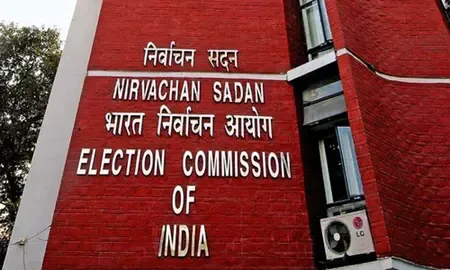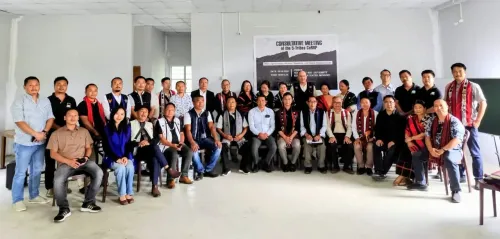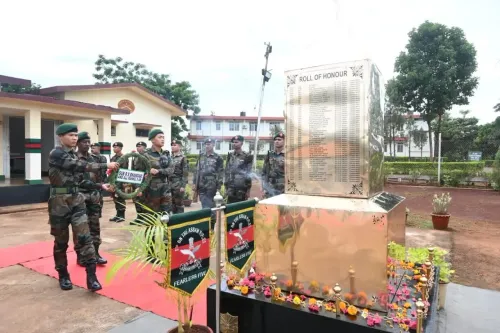Is ECI Set for a Door-to-Door Revision of Electoral Rolls in Bihar?

Synopsis
Key Takeaways
- Special Intensive Revision of electoral rolls announced by the ECI.
- Door-to-door verification to ensure eligible voters are registered.
- Last intensive revision was in 2003.
- Transparency enhanced through document uploads to ECINET.
- Booth Level Officers will conduct the verification.
New Delhi, June 24 (NationPress) The Election Commission of India declared on Tuesday its plans for a Special Intensive Revision of electoral rolls in Bihar, a state with more than 7.8 crore voters, according to an official statement.
In preparation for the upcoming October-November Assembly elections across 243 constituencies, the ECI is set to initiate a house-to-house verification process to guarantee that all eligible voters are registered.
This comprehensive revision, occurring for the first time in 22 years, is designed to ensure that the names of all eligible citizens are included in the electoral rolls, thereby enabling them to exercise their voting rights.
The initiative will also verify that no ineligible voters are present on the rolls, thereby enhancing transparency in the processes of adding or removing electors.
As noted by an ECI source, “During this special revision, the ECI will strictly follow the Constitutional and legal guidelines regarding voter eligibility and disqualifications as specified in Article 326 of the Constitution of India and Section 16 of the Representation of the People Act, 1950.”
This intensive revision will involve Booth Level Officers (BLOs) conducting thorough surveys for verification.
The last major revision took place in 2003. Factors such as rapid urbanization, frequent migration, the emergence of young voters, unreported deaths, and the inclusion of names of illegal immigrants necessitate this intensive revision to maintain the integrity of the electoral rolls, according to an official source.
In the election-bound state, Electoral Registration Officers (EROs) are already assessing the eligibility criteria for voter enrollment as outlined in Section 23 of the Representation of People Act 1950.
To maintain complete transparency, it is essential that the documents supporting the ERO's decisions be uploaded to ECINET, as current technology allows for such measures.
These documents will be accessible only to authorized election officials, ensuring privacy. Should any claims or objections arise from political parties or voters, the AERO will conduct inquiries before finalizing the ERO's decisions.
Under Section 24 of the Act, an appeal against an ERO's ruling can also be made to the District Magistrate and the Chief Electoral Officer.
In the 2020 elections, the National Democratic Alliance (NDA) secured 125 seats, while the Rashtriya Janata Dal-Congress Mahagathbandhan obtained 110 seats, with other parties winning eight seats.









